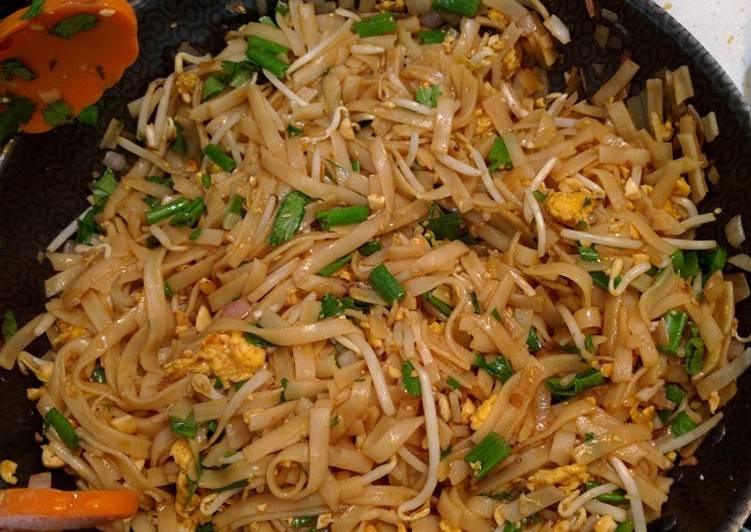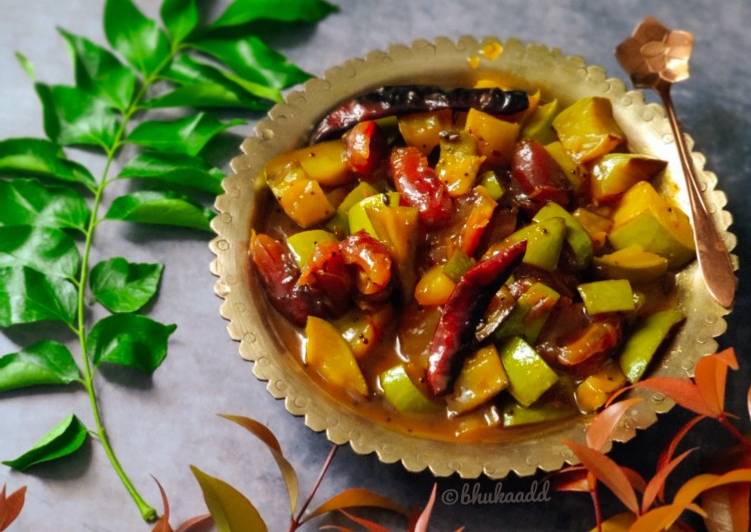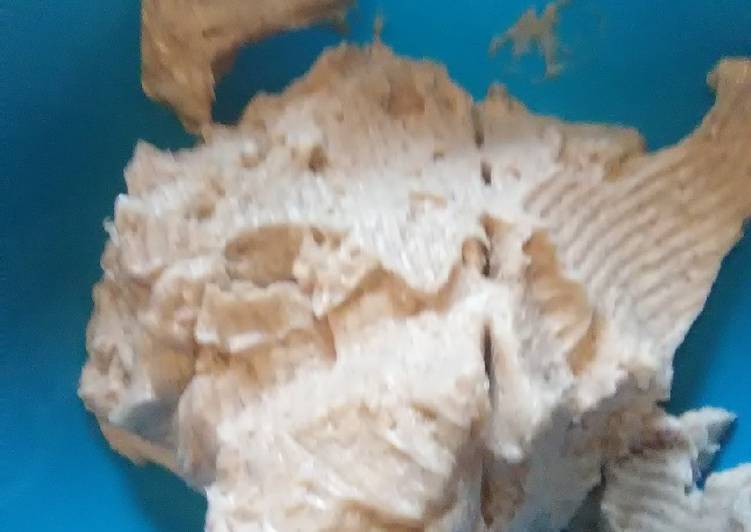
Hello everybody, hope you are having an incredible day today. Today, I will show you a way to prepare a special dish, pad thai. One of my favorites food recipes. For mine, I am going to make it a little bit unique. This is gonna smell and look delicious.
Pad thai, or phad thai, is a stir-fried rice noodle dish commonly served as a street food and at most restaurants in Thailand as part of the country's cuisine. It is typically made with rice noodles, chicken, beef or tofu, peanuts, a scrambled egg, and bean sprouts, among other vegetables. Poo's back FoodTubers and this time she's got a classic Pad Thai recipe to share with you.
Pad Thai is one of the most well liked of current trending foods on earth. It is enjoyed by millions daily. It’s easy, it’s fast, it tastes yummy. They’re fine and they look wonderful. Pad Thai is something that I have loved my entire life.
To get started with this particular recipe, we must prepare a few components. You can have pad thai using 17 ingredients and 12 steps. Here is how you cook it.
The ingredients needed to make Pad Thai:
- Get 250 gr Thai noodles
- Make ready 2 tbsp sesame oil
- Prepare 2 tbsp olive oil
- Prepare 3 eggs
- Make ready 20 small shrimps
- Make ready 2 cloves garlic; chopped
- Prepare 1/4 cup shallots; chopped
- Get 1 tbsp furikake
- Make ready 2 tbsp rice vinegar
- Make ready 4 tbsp soy souce
- Take 2 tbsp brown sugar
- Take 2 tbsp lemon juice
- Get 2 tbsp sriracha
- Prepare 1 cup bean sprouts
- Make ready 1/2 cup crushed peanuts
- Take 1/4 cup green onion (tails, sliced in 1 cm parts)
- Get 1/4 cup cilantro
Pad Thai is one of the world's most beloved noodle dishes. Here's an everyday Pad Thai recipe that really does taste just as good as takeout and you'll find everything you need at the supermarket. It starts with fresh ingredients including rice noodles, chicken, shrimp, tofu, cilantro, bean sprouts. Pad Thai is believed to have originated in Thailand during World War II.
Instructions to make Pad Thai:
- Cook the noodles in boiling water for 5-7 minutes, until done.
- Rinse and add 1/2 tbsp of sesame oil. Stir. Then separate and save for later.
- After cleaning them, cook the shrimps in boiling water for 2.5 to 3 minutes.
- Heat the 2 tbsp of olive oil in a large pan and add the chopped garlic.
- Fry the already boiled shrimps for 1 minute, more or less. Then separate and save for later.
- Scramble the 3 eggs and cook them in a pan, like normal scrambled eggs. Then separate and save for later.
- Before putting the Pad Thai together, let's make the Pad Thai sauce: add the soy sauce, the rice vinegar, the furikake, the brown sugar, the lemon juice and the sriracha in a container and mix well, until the sugar is dissolved.
- On a large pan or wok add the rest of the sesame oil and the chopped shallots. Cook them until brown.
- Add the cooked noodles and stir to mix with the shallots.
- Add the scrambled eggs and the shrimps, and stir again to mix.
- Add the Pad Thai sauce you prepared in step 7 and stir.
- Finally, just before serving, add the bean sprouts, the cilantro, the green onion tails and the crushed peanuts. Give the final stir and serve.
It was born out of a combination of a rice shortage and Thailand's prime minister wanting to create a national dish. Pad Thai is stir-fried rice noodle dish ubiquitous with Thai cuisine in the United States, but it wasn't With World War II nearing, the Thai government created the dish to promote a sense of national unity. Pad Thai - This Pad Thai recipe is how you actually find it in Bangkok and comes from testing hundreds of different variations from food carts all over the city. PAD THAI is Thailand's National Dish & the Most Famous Street Food Meal for Travellers. Pad Thai: The Forgotten History of Thailand's National Dish.
So that is going to wrap it up for this exceptional food pad thai recipe. Thank you very much for reading. I am sure you can make this at home. There is gonna be interesting food at home recipes coming up. Don’t forget to bookmark this page in your browser, and share it to your loved ones, friends and colleague. Thank you for reading. Go on get cooking!


